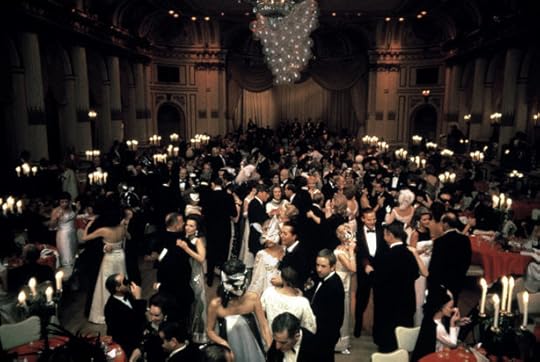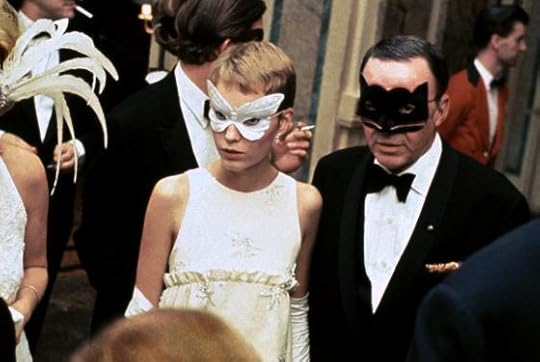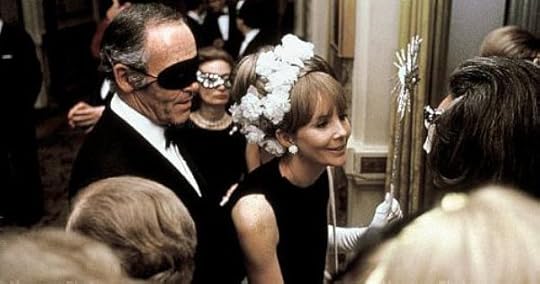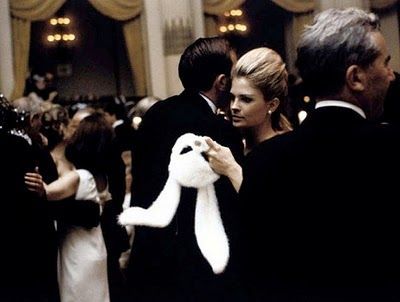What do you think?
Rate this book


150 pages, Paperback
First published January 1, 1986







WH: "Answered Prayers. A quote. I suppose."If that is not brilliant writing, I don't know what it is.
PBJ: "St. Teresa. I never looked it up myself, so I don't know exactly what she said, but it was something like 'More tears are shed over answered prayers than unanswered ones.'"
WH: "I see a light flickering. This book - it's about Kate McCloud, and gang."
PBJ: "I wouldn't say it's about them - though they're in it."
WH: "Then what is it about?"
PBJ: "Truth as illusion."
WH: "And illusion is truth?"
PBJ: "The first. The second is another proposition."
WH: "How so?"
PBJ: "As truth is nonexistent, it can never be anything but illusion - but illusion, the by-product of revealing artifice, can reach the summits nearer the unobtainable peak of Perfect Truth. For example, female impersonators. The impersonator is in fact a man (truth), until he recreates himself as a woman (illusion) - and of the two, the illusion is the truer."



"That's better better and better Billy let me have billy now that's uh, uh, uh, it that's it only slower slower and slower now hard hard hit it hard ay ay los cohones let me hear them ring now slower slower dradraaaaagdrag it out now hit hard hard ay ay daddy Jesus Jesus goddamdaddyamighty come with me Billy come! Come!
How can I when the lady won't let me concentrate on areas more provocative than her roaring roiling undisciplined persona?"



"Kate! McCloud! My love, my anguish, my Gotterdammmerung, my very own Death in Venice: inevitable, perilous as the asp at Cleopatra's breast."


All a writer has for material is what he knows. At least, that's all I've got--what I know.
As truth is nonexistent, it can never be anything but illusion – but illusion, the by-product of revealing artifice, can reach the summits nearer the unobtainable peak of Perfect Truth. For example, female impersonators. The impersonator is in fact a man (truth), until he recreates himself as a woman (illusion) – and of the two, the illusion is the truer.
Both Dietrich and Garbo occasionally came to Boaty's, the latter always escorted by Cecil Beaton, whom I'd met when he photographed me for Boaty's magazine (an overheard exchange between these two: Beaton, "The most distressing fact of growing older is that I find my private parts are shrinking." Garbo, after a mournful pause, "Ah, if only I could say the same.")
“How about it?” he said, blowing the ash off his cigar. “Roll over and spread those cheeks.”
“Sorry, but I don't catch. Pitch, yes. Catch, no.”
“Ohhh,” he said, his way-down-yonder voice mushy as sweet potato pie, “I don't want to cornhole you, old buddy. I just want to put out my cigar.”
• Christ, if Kate had as many pricks sticking out of her as she's had stuck inside her, she'd look like a porcupine.
• She was somewhat porcine, a swollen muscular baby with a freckled Bahamas-burnt face and squinty-mean eyes; she looked as if she wore tweed brassieres and played a lot of golf.
That's the question: is truth an illusion, or is illusion truth, or are they essentially the same? Myself, I don't care what anybody says about me as long as it isn't true.